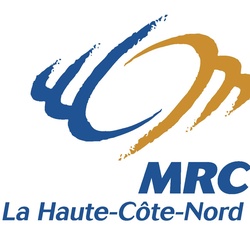
Open
MRC La Haute-Côte-Nord — FLI/FLS
Last Update: October 27, 2025
QC, Canada
Economic support for sustainable business development in MRC
Loans and Capital investments
At a glance
Funding available
Financing goals
Renovate your business/factory
Eligible Funding
- Maximum amount : 150,000 $
- Up to 50% of project cost
Timeline
- Unspecified
Eligible candidates
Eligible Industries
- Agriculture, forestry, fishing and hunting
- Manufacturing
- Transportation and warehousing
- Professional, scientific and technical services
- Administrative and support, waste management and remediation services
- Educational services
- Health care and social assistance
- Arts, entertainment and recreation
Location
- La Haute-Côte-Nord
Legal structures
- Non-profit
- Public or Parapublic institution
- For-profit business
- Social economy enterprise
- Non-financial cooperative
Annual revenue
- All revenue ranges
Organisation size
- All organization sizes
Audience
- Startups
Non-profit candidates
Sector of operation
- Environment
- Economic, Social and Community Development
- Employment and Training
Target groups
- Rural / Remote communities
- Business owners / entrepreneurs
- Nonprofits / charities
Revenue structures
- Mixed revenue (50%+ earned)
Scope
- Regional
Overview
The MRC La Haute-Côte-Nord — FLI/FLS grant offers up to $150,000 to support the start-up, expansion, improvement, and transformation of businesses, as well as entrepreneurial succession within the region. Eligible activities include investments geared towards enhancing productivity, fostering sustainable practices, and supporting economic development projects that benefit the local community.
Activities funded
- Démarrage de l'entreprise.
- Relève entrepreneuriale.
- Acquisition d'entreprise.
- Amélioration et transformation d'entreprise.
- Croissance et expansion d'entreprise.
- Financement temporaire.
- Redressement d'entreprise.
Examples of admissible projects:
$ 150,000
Developing renewable energy solutions for industrial sectors
$ 75,000
Establishing a food cooperative to address food insecurity
$ 90,000
Developing an app for mental health resource access
$ 55,000
Launching zero-waste initiatives in local communities
$ 40,000
Launching a community arts program for youth engagement
$ 60,000
Implementing a digital literacy curriculum in public schools
Eligibility
- Applicant must be a legally constituted for-profit or social economy enterprise under the laws of Quebec or Canada.
- The business must operate in the territory of the MRC and have its head office in Quebec.
- Applicant must be registered with the Quebec Business Register (REQ).
- For social economy enterprises, compliance with specific criteria outlined in Annex A is required.
- Applicant must not be listed in the Register of enterprises ineligible for public contracts (RENA) or be under legal protection such as the Companies' Creditors Arrangement Act (CCAA) or the Bankruptcy and Insolvency Act.
- Applicant must not be a state-controlled entity or have ethical or environmental conduct issues.
- Applicant must demonstrate financial need and capacity for the project, including potential for project sustainability and employment support.
- The project must contribute to the development and economic impact of the MRC.
Who is eligible?
- Legally constituted for-profit companies under the laws of Quebec or Canada
- Collective enterprises such as cooperatives and non-profit organizations with merchant activities under the Social Economy Act
- Companies that are headquartered in Quebec and operating within the territory of the MRC La Haute-Côte-Nord
- Entrepreneurs or groups of entrepreneurs interested in acquiring at least 25% of an existing business for entrepreneurial succession
- Enterprises in eligible sectors contributing to collective social well-being, entrepreneurship, natural resource development, and innovation
Who is not eligible
- Companies registered in the Register of Enterprises Ineligible for Public Contracts (RENA), including their subcontractors listed on RENA for project-related work.
- Applicants failing in their obligations in the past two years after being duly noticed by the ministry or county related to previous financial aid.
- State-owned enterprises or entities controlled directly or indirectly by any level of government (municipal, provincial, federal) or companies mainly owned by a state entity.
- Organizations under protection of insolvency or bankruptcy laws such as the Companies' Creditors Arrangement Act or the Bankruptcy and Insolvency Act.
- Entities with ethical conduct likely to tarnish the integrity or probity of the government or the regional county municipality.
- Businesses irresponsible from an environmental legislation standpoint.
- Those with a history of violating labor standards or human rights laws.
- Industries involved in production or distribution of armaments.
- Those involved in fossil fuel sectors, except activities focusing on transition to a low-carbon economy.
- Gambling and betting activities, such as casinos or bingo halls.
- Violent games or combat sports involving any living species, racing, or similar activities.
- Entities exploiting sexual content, e.g., erotic bars or escort agencies.
- Real estate management and development, except in service-enhancing projects for tenants establishing a better living environment.
- Organizations involved in production, sale, or services linked to all tobacco or drug consumption, except specific cannabis and hemp activities meeting defined criteria by Health Canada.
Eligible expenses
- Additional working capital required for project realization, limited to expenses justified and deemed reasonable, covering up to two years.
- Capital expenses directly linked to project execution, including acquisition of technology, land, buildings, equipment, machinery, and vehicles, as well as construction, expansion, renovation, and development of premises and land.
- Professional fees for feasibility analysis, external audit, or impact study prior to project execution.
- Professional fees directly associated with project implementation, including technology deployment, equipment, machinery acquisition, construction, renovation, and development of premises and land.
- Acquisition costs of voting shares or asset titles of the enterprise.
- Professional fees directly related to the transaction and acquisition of the enterprise and the transfer of its management.
Eligible geographic areas
- Territory of the MRC La Haute-Côte-Nord
- Headquartered in Quebec
Selection criteria
- Viability and economic sustainability of the business being financed, including its profitability, repayment capacity, and future prospects.
- Knowledge and experience of the promoters, particularly their understanding and aptitude in the relevant field and management.
- Environmental and societal benefits, with a focus on improving socio-economic and environmental performance through sustainable business practices.
- Openness towards employees, considering the company's approach to labor relations.
- Participation of other financial partners, especially the involvement of financial institutions and promoter's capital contribution.
- Long-term sustainability of the funds, ensuring that each investment is evaluated for its impact on the fund's portfolio balance and sustainability.
How to apply
- Step 1: Document PreparationComplete the financial assistance application form, ensuring it is dated and signed.
- Prepare a detailed business plan or project description as required by the financial assistance application.
- Provide a detailed breakdown of project-related expenses.
- Compile the financial structure of the project along with confirmation of any additional financial assistance or funding related to the project.
- Gather the financial statements for the past three years.
- Prepare interim financial statements if the most recent financials are older than six months or if the business is less than a year old.
- Prepare future financial forecasts.
- Include a statement of compliance regarding language requirements or a copy of the language certification, if applicable.
- Include a statement of compliance with employment equality or a copy of the employment equality access program, if applicable.
- Include an environmental compliance statement.
- Include proof of insurance (guarantee).
- Collect any other documents required by the MRC.
- Step 2: Application SubmissionSubmit all the required documents along with the completed application form to the MRC of La Haute-Côte-Nord.
- Ensure that the submission meets all the set criteria and guidelines as per the policy.
Additional information
- The investment policy was adopted by the MRC of La Haute-Côte-Nord on September 19, 2023.
- The joint financial engagement of FLI and FLS involves one loan contract indicating the total combined loan amount and weighted interest rate, potentially varied for each fund.
- The discretionary investment committee (CIC) can occasionally make exceptions for investment sharing proportions, taking into account the financial situation of each fund.
- Repayment conditions of any loan are structured to maintain the longevity and balance of the FLI.
- FLS can offer financing under certain conditions in case of economic recovery projects where the portfolio allows.
- Investments by the FLS and FLI are evaluated based on economic viability, promoter experience, environmental and social impact, openness to workers, and partnership with other financial entities.
- Enterprises can repay loans early, considering terms specified in the loan agreement.
- The policy allows for potential deviation requests from the CIC’s standard investment framework, contingent on approvals from the relevant governing bodies.
Apply to this program
Frequently Asked Questions about the MRC La Haute-Côte-Nord — FLI/FLS Program
Here are answers to the most common questions about the MRC La Haute-Côte-Nord — FLI/FLS. This section explains what the program is, how much funding is available, eligibility requirements, application deadlines, and other important details to help you determine if this grant is right for your business.
What is the MRC La Haute-Côte-Nord — FLI/FLS?
How much funding can be received?
What expenses are eligible under MRC La Haute-Côte-Nord — FLI/FLS?
What is the deadline to apply?
Is the MRC La Haute-Côte-Nord — FLI/FLS a grant, loan, or tax credit?
Who are the financial supporters of the MRC La Haute-Côte-Nord — FLI/FLS?
Who is eligible for the MRC La Haute-Côte-Nord — FLI/FLS program?
Who can I contact for more information about the MRC La Haute-Côte-Nord — FLI/FLS?
Where is the MRC La Haute-Côte-Nord — FLI/FLS available?
Are startups eligible for the MRC La Haute-Côte-Nord — FLI/FLS program?
Apply to this program
More programs like this

Grant and FundingOpen
Innovative Projects Program
Hydro-QuébecSupports innovative, energy-efficient projects for multi-building developments
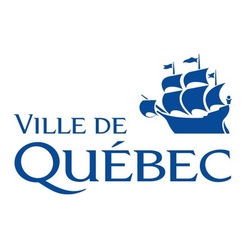
Grant and FundingOpen
Capitale-Innovation
Quebec CitySupports business innovation, commercialization, and market expansion projects
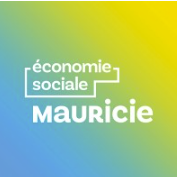
Grant and FundingOpen
Social Economy Support Fund
Social Economy MauricieNon-repayable financial aid supporting social economy projects in Mauricie
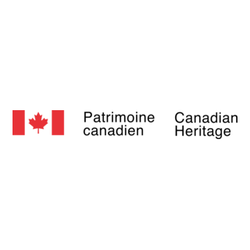
Grant and FundingClosed
Anti-Racism Action Program
Canadian HeritageSupports initiatives addressing racism, discrimination, and social barriers

Grant and FundingOpen
Regions and Rurality Fund (RRF) - Component 1 - Support for regional outreach
Gouvernement du QuébecSupports regional projects impacting Quebec's territories and communities

Grant and FundingOpen
Financial support program for government initiatives in community and volunteer action
Gouvernement du QuébecSupports community and volunteer action in Quebec organizations

Grant and FundingArchived
Call for projects in social innovation
Gouvernement du QuébecSupports innovative solutions addressing significant social needs in Quebec

Grant and FundingOpen
Community Action Support Program for Families – Component 4 – One-time Support for Innovative Projects
Gouvernement du QuébecOne-time funding for innovative family-focused community initiatives
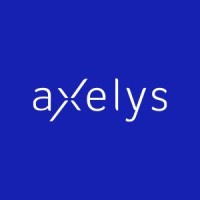
Partnering and CollaborationGrant and FundingExpert AdviceClosed
Scientific and Innovative Venture Program (SIVP)
Québec Research FundSupports researchers launching innovative science-based businesses in Quebec

Grant and FundingOpen
Support, modernization, and alignment program with needs and markets for construction, renovation, demolition, and deconstruction waste
Recyc-QuébecSupports sustainable management of construction, renovation, and demolition waste
Sign up to our platform to access the MRC La Haute-Côte-Nord — FLI/FLS information sheet for free
Get access to 4,000+ programs, practical guides, personalized alerts, and an AI assistant to support your grant applications.